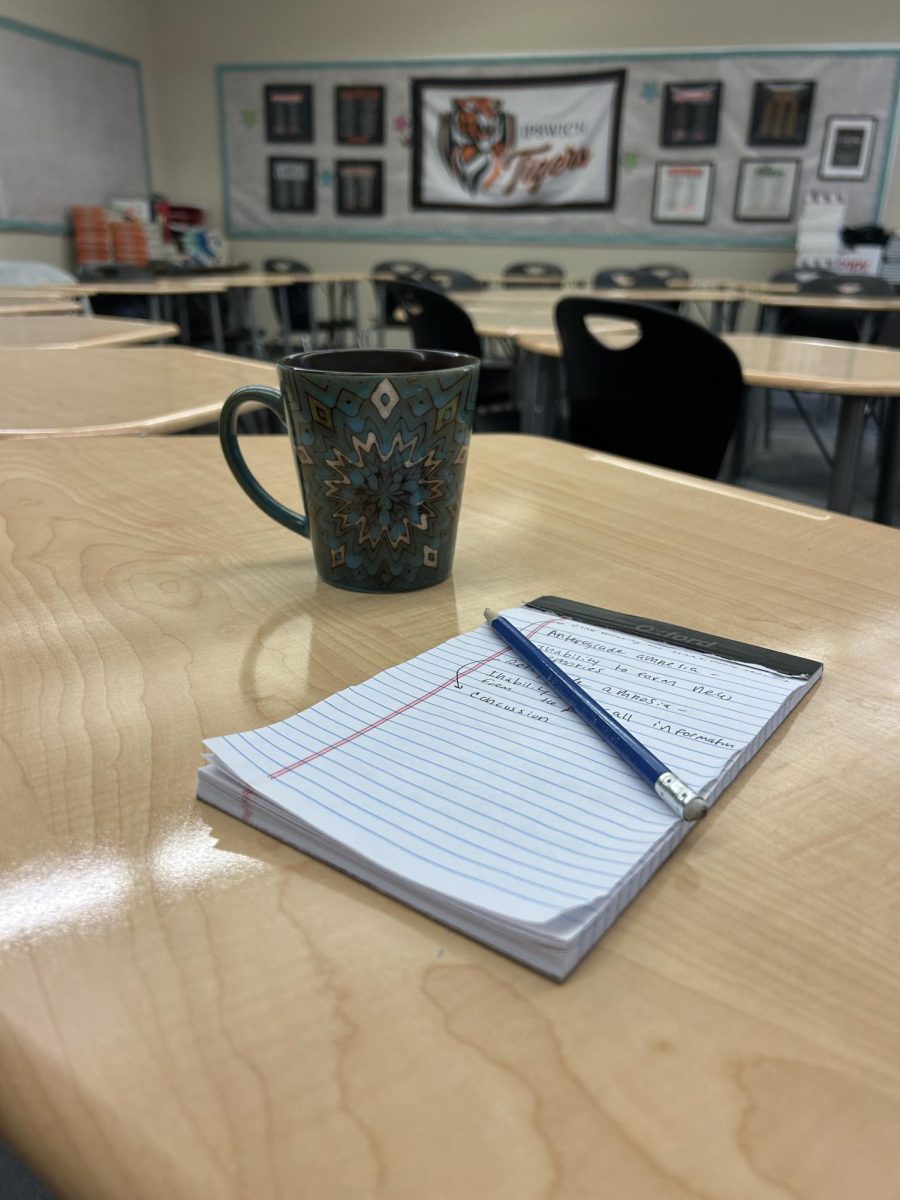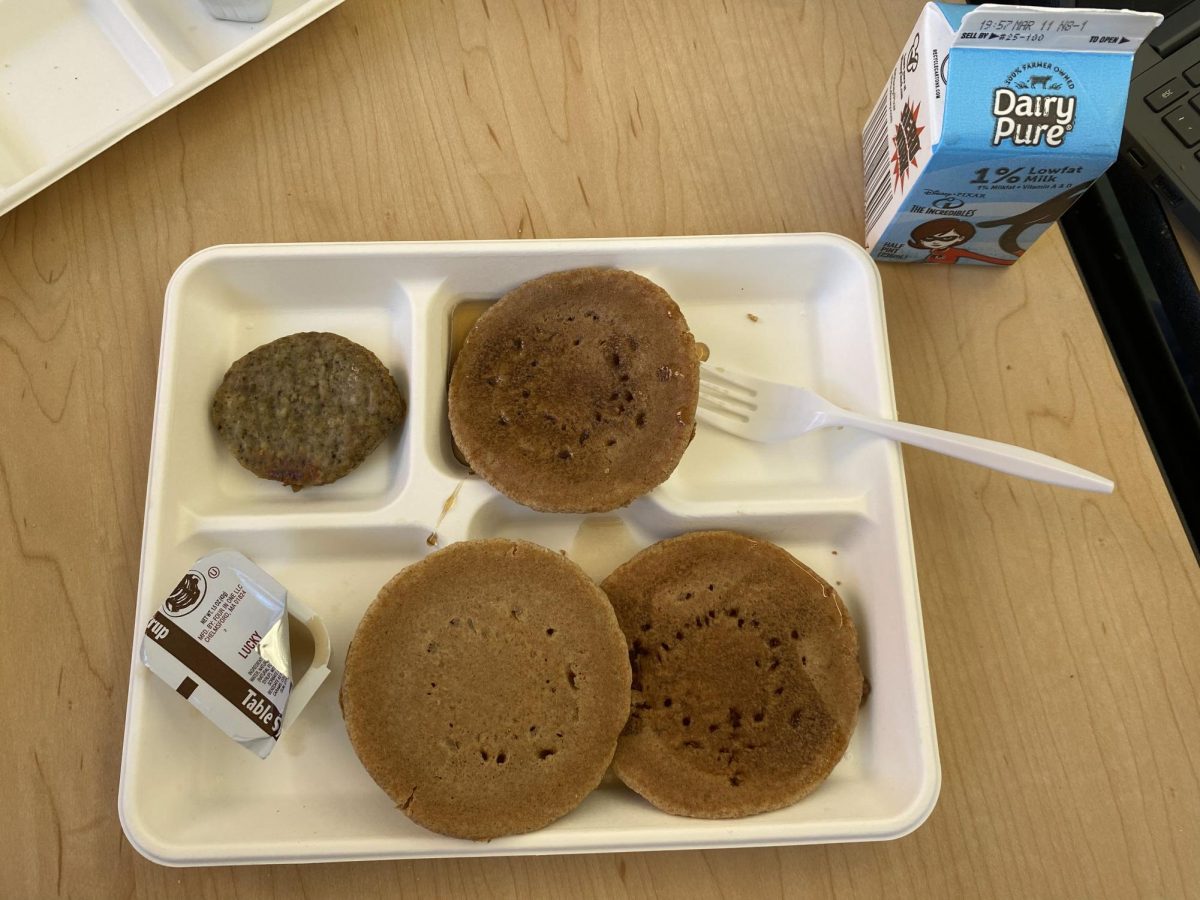When you wake up in the morning, what is the first thing you do? For many, their answer would be that they walk downstairs, and pour themselves a cup of coffee. On average, a coffee drinker in America drinks around three cups of coffee everyday. (Joesgaragecoffee.com). Caffeine dependency is very normalized. This begs the question: how does caffeine affect people, and how does the “addiction” start?
At IHS, many students come into school most mornings holding a tumbler or reusable coffee cup. Some students even bring in other sources of caffeine like energy drinks. But what’s so important about caffeine and why do people drink it so much? In order to answer this question, I interviewed a frequent coffee drinker and IHS senior, Autumn Foley. She states: “It’s an essential part of my morning.” Autumn believes drinking coffee in the morning serves as a “pick me up.” She claims it boosts her energy level and makes her more alert and attentive at school. She even goes so far as to say that without caffeine, she wouldn’t do as well on tests and quizzes.
That is just Autumn Foley’s experience as a coffee drinker, and many other Americans feel similarly. Some claim to drink coffee because of how it tastes; however, according to (Sprudge.com) 67% of Americans drink it because of the energy it provides. The effect on energy and alertness caffeine has is a well known fact: “Caffeine is a stimulant, which means it increases activity in your brain and nervous system. It also increases the circulation of chemicals such as cortisol and adrenaline in the body” (betterhealthchannel.gov). While you may know all of the “positive” effects of drinking caffeine such as the increase in energy, the negative effects commonly go unnoticed.
In my interview with Autumn, she said something surprising. When she talked about what would happen if she didn’t drink coffee for a day she said that she would encounter migraines and irritability. This made me think that if those are only two effects Autumn has experienced from not drinking coffee for a day, what other negative effects does caffeine have on the body?
With further research, it can be noted that drinking more than four cups of coffee per day can cause many different effects, such as: headaches, nervousness, jitters, irritability, fast heartbeat, insomnia, and muscle tremors (verywellhealth.com.) Although these effects may not be life threatening, it has been proven that caffeine can take a toll on young developing brains. Starting to drink caffeine from a young age can cause brain development to be stunted, due to caffeine causing growing connections in the brain becoming less efficient and not forming all together (verywellhealth.com).
Later on, I talked to Nurse Paula Butt, the nurse at Ipswich High School. She shared her take on caffeine and the growing spread of the addiction amongst teenagers. “Kids will come in to the nurse not feeling good, and it can be due to caffeine,” Paula expressed. Although coffee is a common form of caffeine, there is an increase in energy drink consumption for high school students. Paula warned just how bad energy drinks are. “Energy drinks can be even worse than coffee; they even can be linked to heart disease.”
Similar to many others, Autumn began drinking coffee at the age of 13, which is a critical time for brain development. Although it is not ideal to begin drinking caffeine from a young age or to drink too much caffeine in general, it is not too late to cut down on your caffeine intake in order to experience less of the side effects.
Even though there can be some side effects to cutting out caffeine, there are ways to make the transition easier. You can slowly start to cut back on drinking coffee or energy drinks little by little. This means you can go from drinking three cups of coffee a day, to drinking two. And over time cut it back to one cup every other day. Another replacement for coffee is tea. Tea has less caffeine than coffee does, and it doesn’t have the side effects that it does.
In conclusion, while caffeine is a common part of many people’s daily routines, it’s very important to be aware of its effects. While it can give a quick boost of energy, drinking caffeine too much can lead to problems like addiction, headaches, and even brain development being hindered in teens. Balance is key, and too much of anything can be harmful. In the end, it is important to make smart choices like avoiding caffeine reliance in order to stay healthy.





